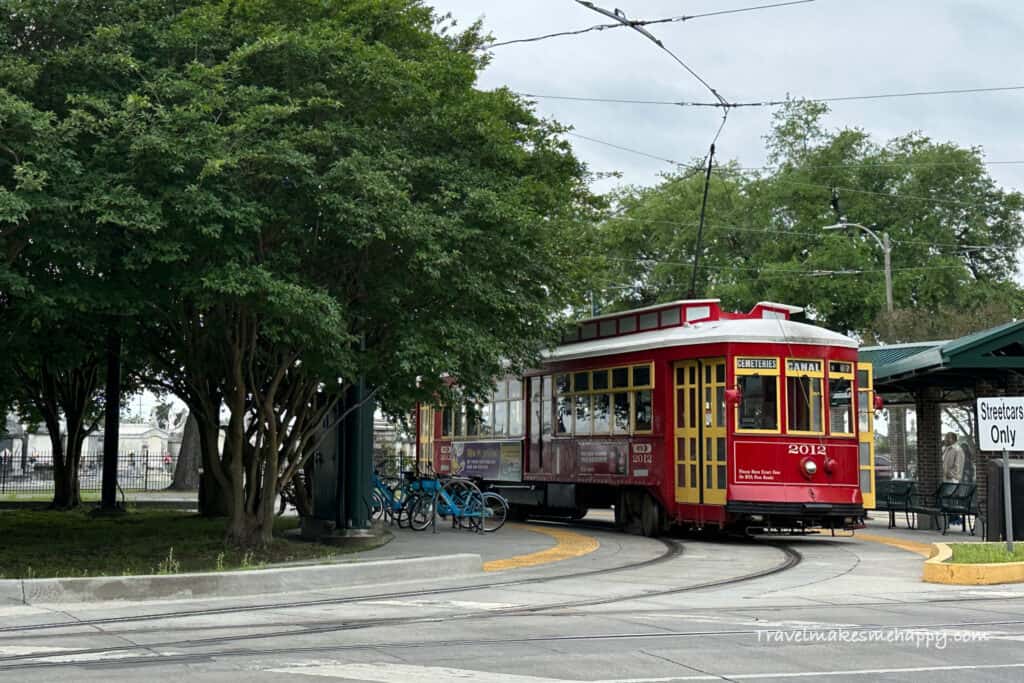
Festival trips sit where travel, identity, and culture meet. Through a sociology lens, we look at how shared music and food rituals turn a trip into a feeling of belonging while using New Orleans (our hometown) as a living case study. If you’re planning a trip around sound and flavor, start with our New Orleans food & music festivals guide, the definitive Mardi Gras local’s guide, and our Jazz Fest tips beyond the music.
Overview of Sociological Aspects of Travel and Festivals: (What this article covers)
- Why people travel to festivals through a sociology lens (identity, communitas, place attachment)
- What motivates festival travel and what keeps travelers coming back to a place using a sociology lens
- Research-backed takeaways for travelers, writers, and researchers
- A curated list of culturally rich festivals (with timing tips)
- FAQs for quick answers to travel sociology questions
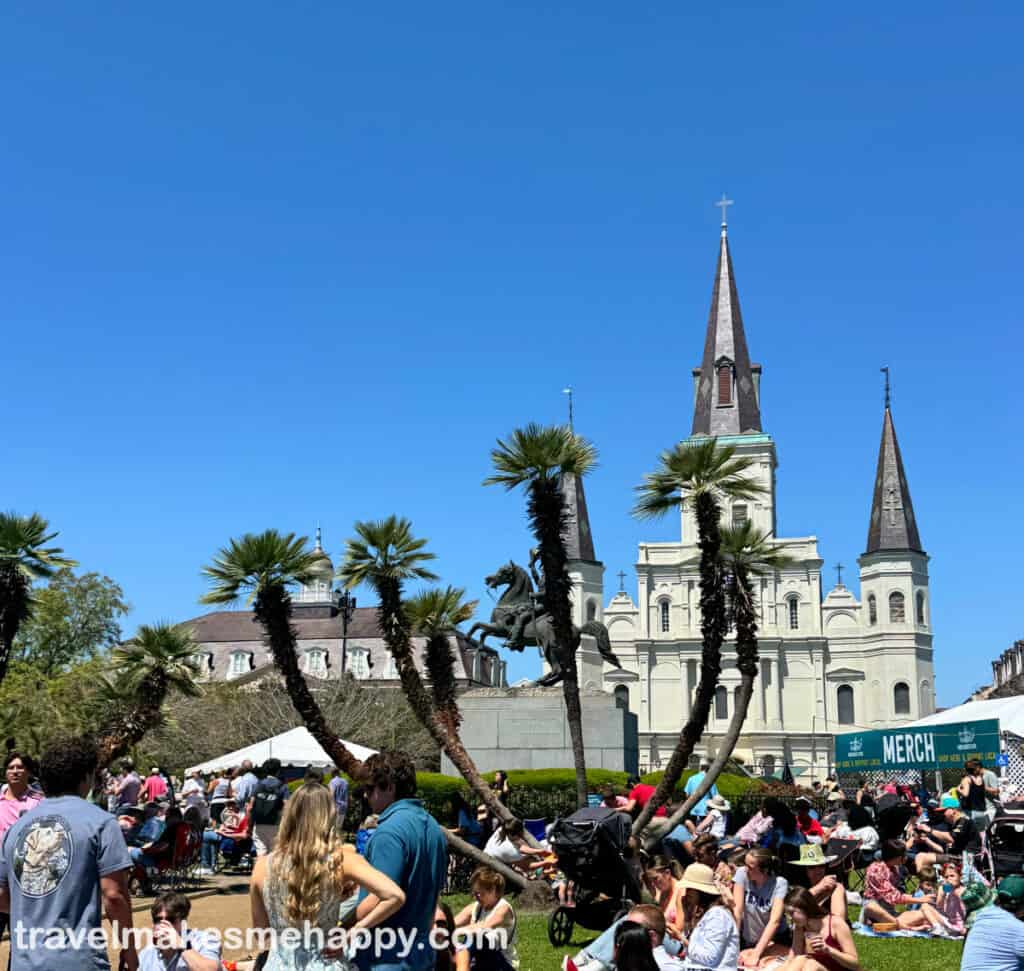
We may earn commission from affiliate links. Also, as an Amazon Associate I earn from qualifying purchases. We cherish your support!
The sociology of festival travel: how festivals shape who we are
Communitas & liminality. Festivals suspend everyday roles to create liminal spaces where strangers experience an intense sense of togetherness (communitas). This mechanism helps explain why festival trips feel transformative and why people reorganize future travel around similar experiences (Turner, 1969/1991; Jahn et al., 2018).
Identity work and co-creation. Travelers don’t just consume culture; they co-create it through participation, dress, rituals, and fandom. These shared performances become unusually memorable, identity-shaping anchors in people’s travel narratives and make them want to travel there again and again (Kim et al., 2012).
Authenticity & the “extraordinary.” Recent ethnography at a major music festival shows how attendees seek spatial authenticity, which is a blend of the festival’s musical character with the rhythms of everyday life to craft extraordinary experiences (Skandalis, Banister, & Byrom, 2024). It elevates the ordinary to something higher.
From moments to place attachment. When festival moments feel meaningful, travelers start attaching to the place (streets, venues, neighborhoods). Place attachment links to loyalty behaviors like revisiting and recommending (Lee, Kyle, & Scott, 2012; Zou et al., 2022). The always fun “afterfest” in New Orleans after Jazz Festival is a perfect example of this.
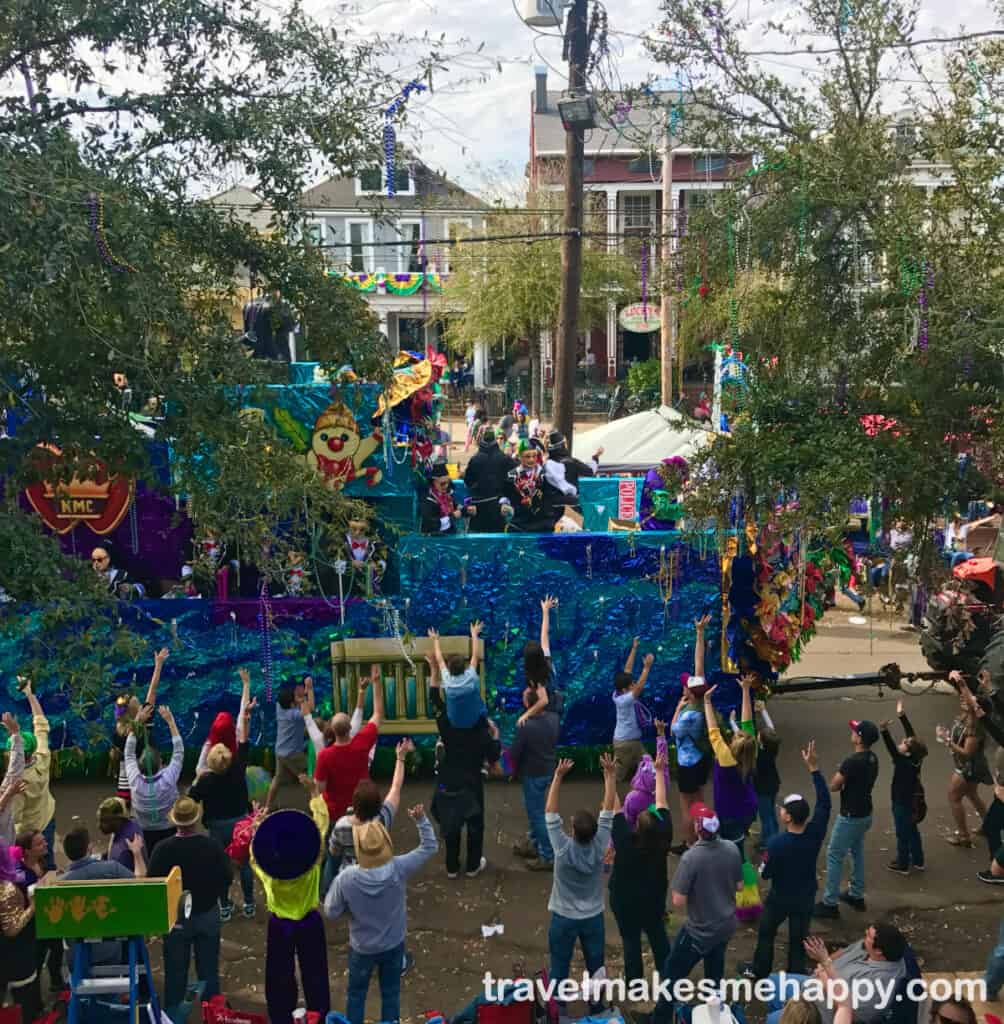
Why people travel to festivals: sociological motivation patterns
Across dozens of studies, a consistent motivation set emerges: socialization, escape/novelty, entertainment, learning/culture, and (often) local food/arts. Systematic reviews in festival studies consolidate these as the core drivers (Maeng et al., 2016). These drivers are what motivates us to travel to festivals we connect with when looking through a sociology lens.
Focusing on food/gastronomy festivals, research finds five driving motivational dimensions: Local food, Socialization, Entertainment, Escape & novelty, and Art with several predicting loyalty intentions (Carvache-Franco et al., 2025). Cuisine is a window into the culture of “place” and a great way to experience and connect with the visited “place”.
Zhu also finds that within a Stimulus-Organism-Response (S-O-R) lens, festival design cues (music/food “stimuli”) shape internal states (identity, emotion, authenticity) that drive loyalty (Zhu et al., 2025; Şengöz et al., 2024). This combination strengthens the connection we have with attending festivals and returning on future trips.
What keeps travelers coming back: belonging → attachment → loyalty
- Temporary communitas is a reliable predictor of willingness to return which is sometimes even stronger than satisfaction, although crowding can dampen the effect (Jahn et al., 2018).
- Authenticity in traditional cultural festivals strengthens festival identity and place identity (Lin & Lee, 2020).
- Place attachment (identity, dependence, affect) is positively linked to revisit/recommend intentions across tourism contexts (Zou et al., 2022; Lee, Kyle, & Scott, 2012).
How and where festival tourism fits in the bigger research picture
Festival travel sits within event tourism, a mature sociology subfield with widely cited syntheses (Getz, 2008; Getz & Page, 2016). These reviews map how planned events produce meaning, participation, and destination outcomes which are useful for outreach and place attachments. (Getz, 2008; Getz & Page, 2016).
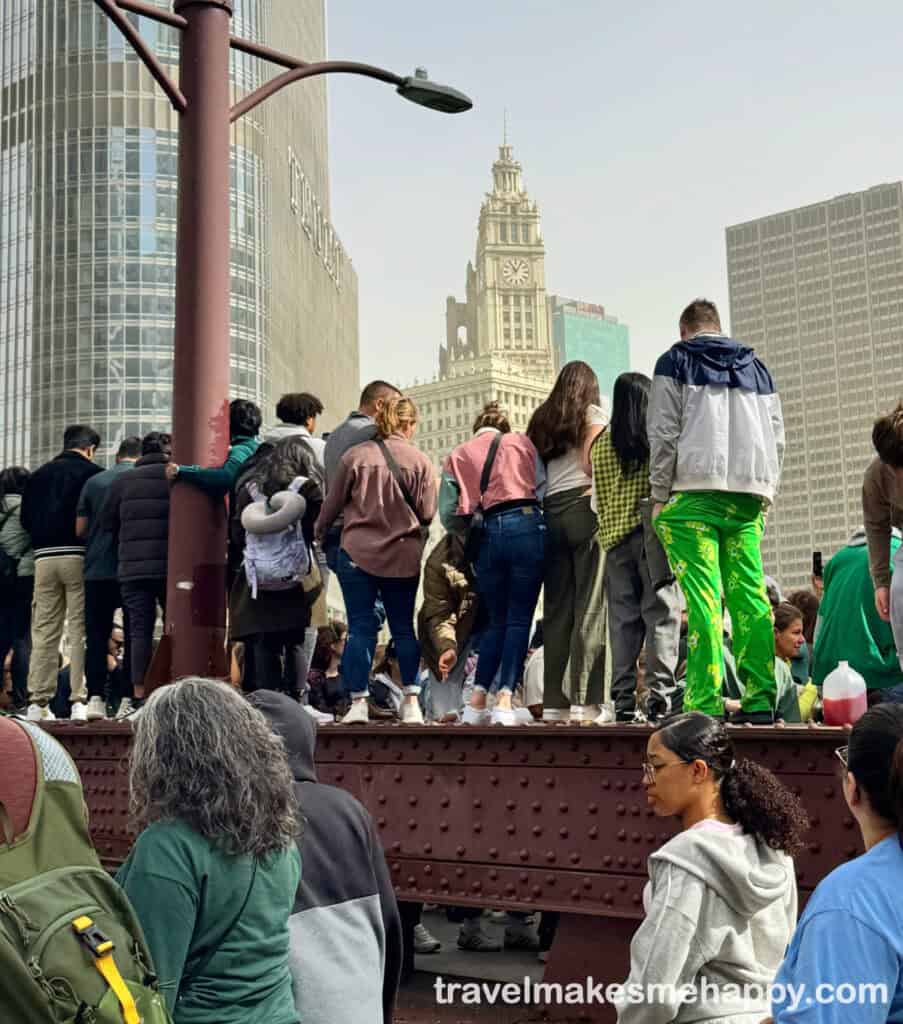
What this means for travel in simple terms
Here’s the simple version of all that theory and how to use sociology to plan better festival trips and travel around music and food.
Festivals create a “bubble”
For a few days, normal life pauses and everyone agrees to play by the same simple rules: show up, be open, join in, have fun. That temporary bubble is why you can feel close to strangers at a parade, a small stage set, or a long food line. (Sociologists call this liminality and communitas, but you can just think “instant camaraderie.”)
You help make the magic
A festival isn’t just something you watch; it’s something you do and do with others. Singing along, experiencing art, tasting the local specialty, or dancing in the street; all of those tiny actions turn you from spectator to participant. That’s why it sticks and makes you want to travel there again.
“Authentic” = it felt real to you and makes the place feel more “authentic”
When the music, the neighborhood, and the food feel connected (say, brass bands + second lines + a plate of local comfort food), your brain flags the moment as meaningful. That “this is real” feeling is what researchers mean by authenticity.
Places become personal
Revisiting the same corner stage, the same vendor, or the same café before the music starts creates your own mini-traditions. Do that twice and the neighborhood starts to feel like “yours.” That’s place attachment and it’s why you’ll want to come back on many trips. We even have our guide to revisiting favorite places on a trip and the motivation is the same. It’s a connection.
Case Study: New Orleans year-round music + food festivals create lifelong belonging
New Orleans is a living sociology laboratory for everything in this article: communitas, authenticity, co-creation, and place attachment all show up on the street, at parades, on small festival stages, and in our celebrations. We love festivals and celebrating with those who travel here to celebrate with us. This is what motivated the article because New Orleans lives this year-round! (see our New Orleans festivals guide month-by-month)
How the sociology of travel plays out here with NOLA festivals
- Instant camaraderie (communitas). From neighborhood parades to small club sets, people step into the same “festival bubble,” share the beat, swap critiques of the best po-boy in line, and walk away feeling like part of something (Jahn et al., 2018).
- Authenticity you can taste and hear. Brass bands, Mardi Gras Indians, second-line rhythms, gumbo, beignets just to name a few. The music and food are inseparable from the place, so moments feel “real” and are a glimpse into our culture.
- Co-creation in public space. Krewes, marching clubs, neighborhood cooks, volunteers, and visitors all contribute; you’re not just watching culture, you’re helping make it.
- Place attachment that sticks. People from all over the world return again and again to New Orleans and we love it!
Best cultural festivals to experience (music & food trip-planning favorites)
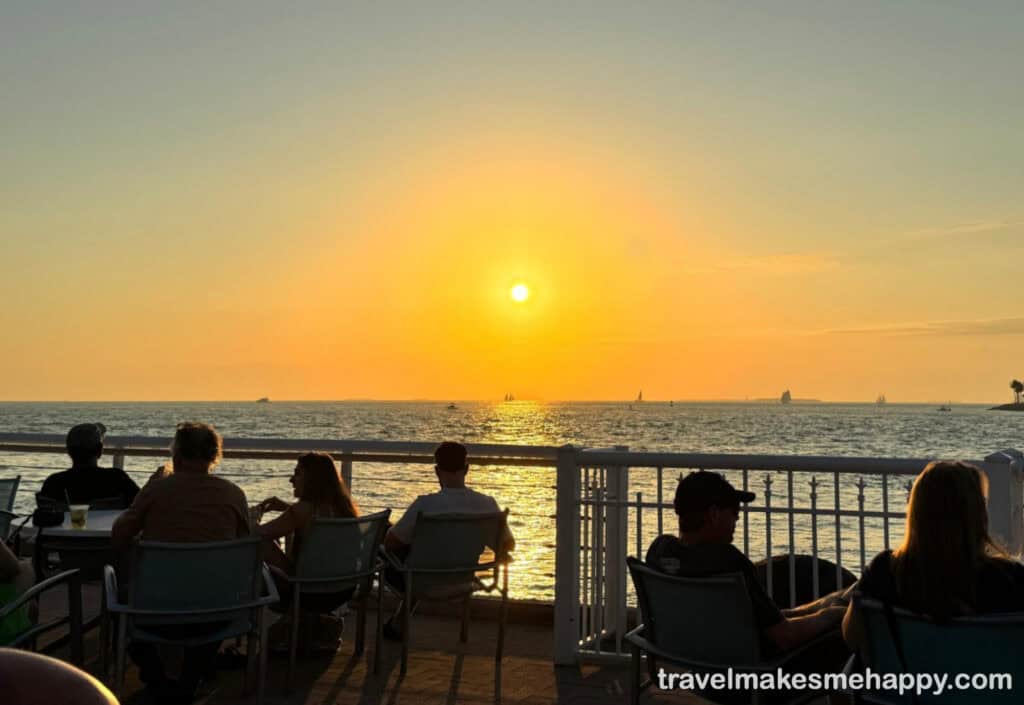
Music-centered festivals:
- New Orleans Jazz & Heritage Festival (New Orleans, late Apr–early May) – Great Music & fun across genres + deep Creole/Cajun foodways; pair with our Jazz Fest tips beyond the music.
- Satchmo SummerFest (New Orleans, early Aug) – Intimate jazz heritage + museum tie-ins, food, and cultural exhibits.
- Lollapalooza (Chicago, late Jul–early Aug) – Amazing Multi-genre headliners in Grant Park with skyline views; excellent Chicago food vendors; buy passes early and review bag/entry policies; use CTA trains or walkable hotels near the Loop.
- Key West Songwriters Festival (Key West, early May) – Acoustic songwriters’ rounds in intimate bars, beaches, and historic venues in Old Town; hear hit songs performed by the writers; stay at one of the best hotesl in Old Town and expect late-night sets & laid-back fun.
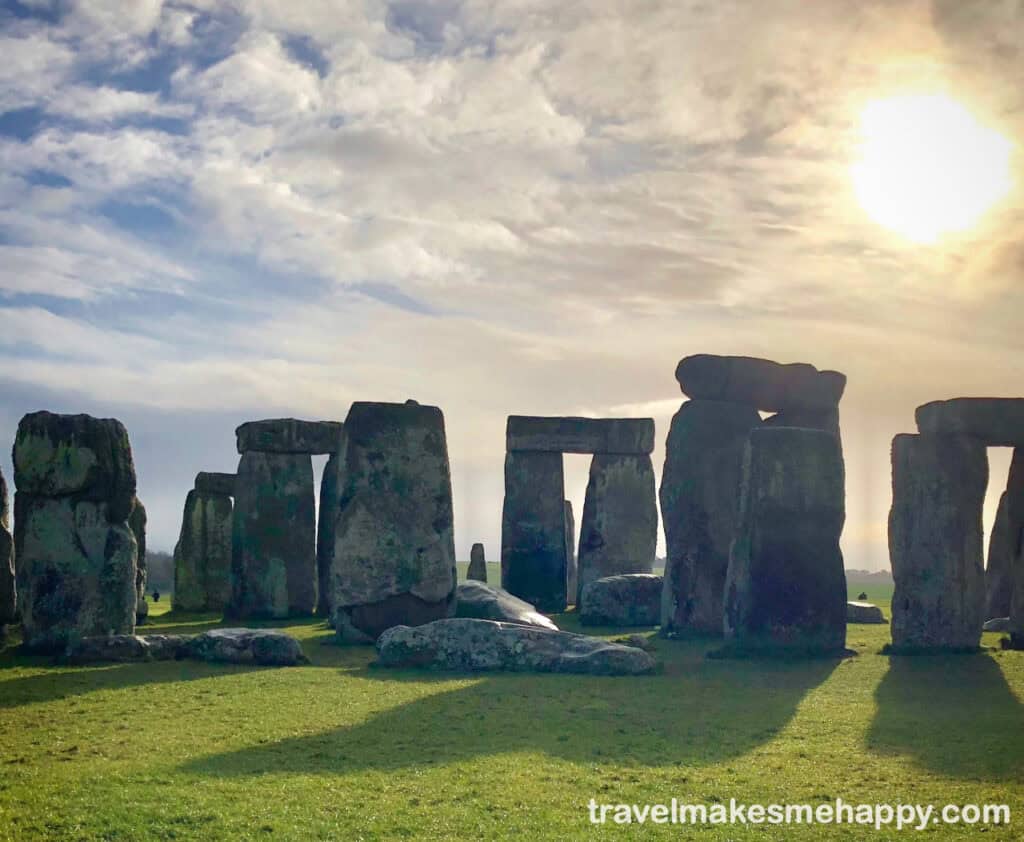
Cultural festivals:
- Mardi Gras (New Orleans, late Jan–Feb) — Parades, neighborhood krewes, king cake, and second lines; see our Local’s Mardi Gras Guide.
- Día de los Muertos (Oaxaca/Mexico City, Oct 31-Nov 2) — Altars, pan de muerto, processions; book cemetery-permitted visits with local guides. A day to honor your ancestors and experience togetherness.
- Summer Solstice at Stonehenge (Wiltshire, UK, June 20-21) — Sunrise gathering within sight of the stones; check English Heritage guidelines, arrive very early, and dress for very cool temps. It was so cold and windy when we went, but life-changing! [Try this Sunrise Stonehenge Day Trip tour from London!]
- Oktoberfest (Leavenworth, Washington, late Sep – Oct weekends) – Bavarian-style village celebration with beer gardens, polka bands, and pretzels. Hotels sell out months ahead. See our guide on the best Oktoberfest celebrations in the U.S.
- SXSW (Austin, March) — Convergence of interactive art, film, and music since 1987 with legendary food trucks and pop-ups; plan badge vs. wristband strategy and book downtown accommodations early. A Texas Wine Country road trip is also easy to plan!
Final Thoughts: Turn culture into belonging one festival at a time!
Festival travel isn’t just entertainment; it’s a reliable way to build identity, belonging, and form lasting place attachment. When you plan trips around music and food, you step into living culture; co-creating memories through small rituals, shared moments, and authentic local flavors. That’s why festival tourism drives repeat visits and word-of-mouth: the authenticity and feeling of connection is worth returning to.
I know this seems like a love letter to New Orleans and it kind of is because it’s the perfect case study to look at through this sociological lens. There are many other cities that have the same festival aspects and draw people from all over to be a part of the special times!
Use the research-backed travel playbook to help you plan and anchor each day with one must-see set or parade, participate in a ritual, create a tiny tradition, and leave space for serendipity. This way, you’ll turn any cultural festival into a meaningful journey.
Author’s Note: I’m not only the founding voice of Travelmakesmehappy.com, but also a proud Alumna of the University of New Orleans with an academic background in sociology. My work explores how people build identity, belonging, and well-being through travel, especially at festivals, through cuisine, and cultural gatherings. My goal is to use current peer-reviewed research and translate it into practical guidance for travelers and planners to help plan life-enhancing experiences through exploration. ~ K.J. 2025

🎹If you found this useful, share it with a friend who loves music festival travel or food festivals, and tell us which cultural festival shaped your travel identity. Your insights help other readers plan richer, more connected trips. 🎼
FAQS on Sociological Aspects of Festival Travel
Festivals bundle social connection, novelty, entertainment, and local culture/food in a short window which is exactly the motivation set the research literature repeatedly finds (Maeng et al., 2016; Carvache-Franco et al., 2025).
Feeling you belonged (temporary communitas), sensing authenticity, and developing a strong place attachment. These all empirically link to loyalty and returning to festivals on future travel (Jahn et al., 2018; Lin & Lee, 2020; Zou et al., 2022).
It’s unusually co-created: artists, volunteers, vendors, and crowds together produce the shared experience, which helps make it memorable and identity-shaping (Kim et al., 2012; Skandalis et al., 2024).
Choose festivals aligned with your preferences, look for participatory moments (parades, cooking demos, workshops), and give yourself time in the neighborhood. This combination heightens authenticity and place attachment (Lin & Lee, 2020; Lee, Kyle, & Scott, 2012).
References for Further Reading:
- Carvache-Franco, M., et al. (2025). Motivations and their influence on loyalty in food festivals. Cogent Business & Management. (Open access). Taylor & Francis Online
- Getz, D. (2008). Event tourism: Definition, evolution, and research. Tourism Management. ScienceDirect
- Getz, D. (2016). Progress and prospects for event tourism research. Tourism Management. ScienceDirect
- Maeng, H.Y. et al. (2016). A critical review of motivational factors for festival attendance. Tourism Management Perspectives. ScienceDirect
- Jahn, S. et al. (2018). Temporary communitas and willingness to return to events. Journal of Business Research. ScienceDirect
- Haggar, S. (2024). Victor Turner and the transformation of a concept (communitas & liminality). Time & Society. SAGE Journals
- Skandalis, A. et al. (2024). Music festivals, authenticity & the extraordinary. Journal of Travel Research. SAGE Journals
- Skandalis, A., Banister, E., & Byrom, J. (2024). Spatial Authenticity and Extraordinary Experiences: Music Festivals and the Everyday Nature of Tourism Destinations. Journal of Travel Research, 63(2), 357–370. (Open-access version). Liverpool Repo
- Wood, E.H. & colleagues (2024). Shared festival tourism experiences & memorability. Journal of Travel Research. SAGE Journals
- Carvache-Franco, M. et al. (2025). Motivations and loyalty in gastronomic festivals. Cogent Business & Management. Taylor & Francis Online
- Turner, V. (1969/1991). The Ritual Process: Structure and Anti-Structure. Cornell University Press. (Chapter “Liminality and Communitas”). Vu.it
- Zhu, N. et al. (2025). Festival loyalty via the SOR framework. Humanities & Social Sciences Communications (open-access). PMC
- Davis, A. (2016). Place identity & attachment mechanisms in tourist environments. Tourism Management. ScienceDirect
- Zou, W. et al. (2022). Place attachment ↔ tourist loyalty. Journal of Destination Marketing & Management. ScienceDirect
